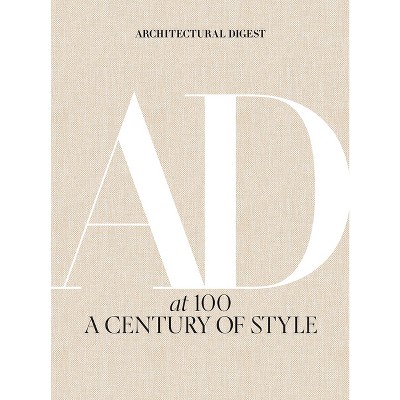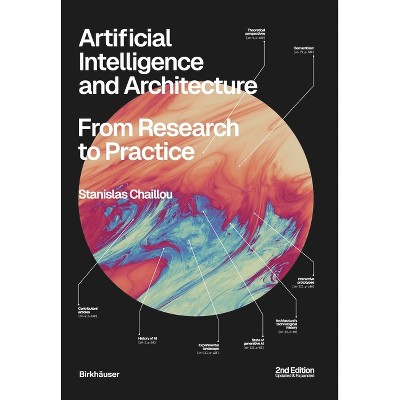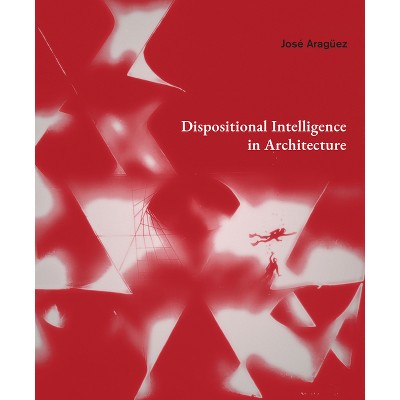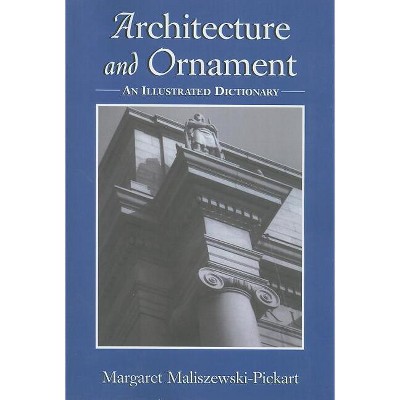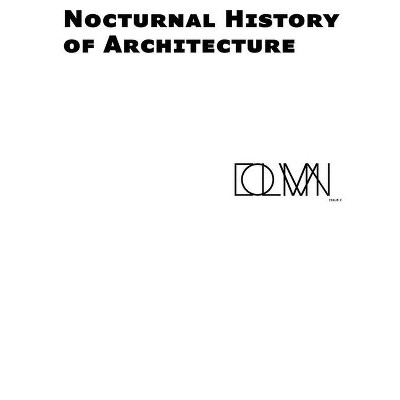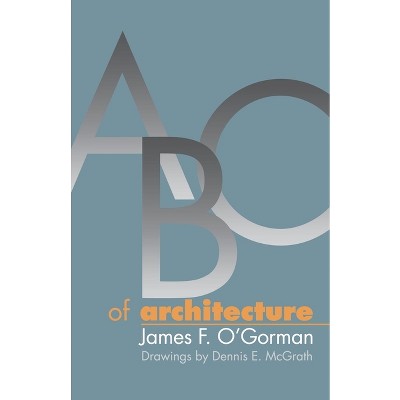Diffusions in Architecture: Artificial Intelligence and Image Generators - by Matias del Campo (Paperback)

About this item
Highlights
- DIFFUSIONS IN ARCHITECTURE A guide to diffusion models and their impact on design, with insight on how this novel artificial intelligence technology may disrupt the industry Diffusions in Architecture: Artificial Intelligence and Image Generators delves into the impact of Generative AI models and their effect on architecture design and aesthetics.
- About the Author: Matias del Campo is a registered architect, designer, and educator.
- 352 Pages
- Architecture, Reference
Description
Book Synopsis
DIFFUSIONS IN ARCHITECTUREA guide to diffusion models and their impact on design, with insight on how this novel artificial intelligence technology may disrupt the industry
Diffusions in Architecture: Artificial Intelligence and Image Generators delves into the impact of Generative AI models and their effect on architecture design and aesthetics. The book presents an in-depth analysis of how these new technologies are revolutionizing the field of architecture and changing the way architects approach their work. The architects presented in the book focus on the application of specific AI techniques and tools used in generative design, such as Diffusion models, Dall-E2, Stable Diffusion, and MidJourney. It discusses how these techniques can generate synthetic images that are both realistic and imaginative, creating new possibilities for architectural design and aesthetics.
Twenty-two leading designers and theorists offer their insights, providing disciplinary depth by covering the full impact of these learning tools on architecture.
From the Back Cover
A guide to diffusion models and their impact on design, with insight on how this novel artificial intelligence technology may disrupt the industry
Diffusions in Architecture: Artificial Intelligence and Image Generators delves into the impact of Generative AI models and their effect on architecture design and aesthetics. The book presents an in-depth analysis of how these new technologies are revolutionizing the field of architecture and changing the way architects approach their work. The architects presented in the book focus on the application of specific AI techniques and tools used in generative design, such as Diffusion models, Dall-E2, Stable Diffusion, and MidJourney. It discusses how these techniques can generate synthetic images that are both realistic and imaginative, creating new possibilities for architectural design and aesthetics.
Twenty-two leading designers and theorists offer their insights, providing disciplinary depth by covering the full impact of these learning tools on architecture.
Review Quotes
"One of the hopes I have with the book is to create a vehicle for thinking through the problem of architecture and Artificial Intelligence. Not limited to AI models that are based on diffusion algorithms, of course, but rather generally speaking. How do you develop a language around this novel tool? I don't mean just the visual language. I mean also literally writing about it, thinking about it, conceptualizing it, and intellectually interrogating the problem."
- Matias del Campo
From the interview with Zack Saunders at https: //www.arch2o.com/interview-with-matias-del-campo/"
Arch2O
About the Author
Matias del Campo is a registered architect, designer, and educator. He is an Associate Professor at Taubman College of Architecture and Urban Planning, University of Michigan, director of AR2 IL - The Architecture and Artificial Intelligence Laboratory at UoM, and an affiliate faculty member of Michigan Robotics and Data Science. Matias del Campo is the co-founder of the architecture practice SPAN. His previous publications include Neural Architecture - Design and Artificial Intelligence (ORO Editions 2022) and Sublime Bodies (co-authored with Sandra Manninger, Tongji Press 2017)
Lev Manovich is a Presidential Professor at The Graduate Center, City University of New York, and the founder and director of the Cultural Analytics Lab. He is an artist, writer, and one of the most influential theorists of digital culture worldwide.





